Top Dermatologist: These Are the Best Sunscreen Formulas That Protect Women 50 and Over From Head to Toe
The sun is responsible for 90% of visible skin aging, and daily use of SPF is not only the simplest and only way to protect yourself, but it also safeguards the body from skin cancer. And even when you think you’re safe, you may not be. “By now, we know that sun protection on cloudy days is also important, but many people don’t know that they’re not entirely safe indoors, as UVA rays, the type of exposure that primarily causes skin cancer, cross windows,” says Beverly Hills–based dermatologist Mariano Busso, MD. “Sun radiation can also be reflected on different surfaces, including water, sand or snow, so we can still receive radiation under an umbrella." To make sure you’re getting the most protection this summer and beyond, Dr. Busso reveals his top sunscreen tips below and the best sunscreen formulas that are guaranteed to keep you sun-safe.
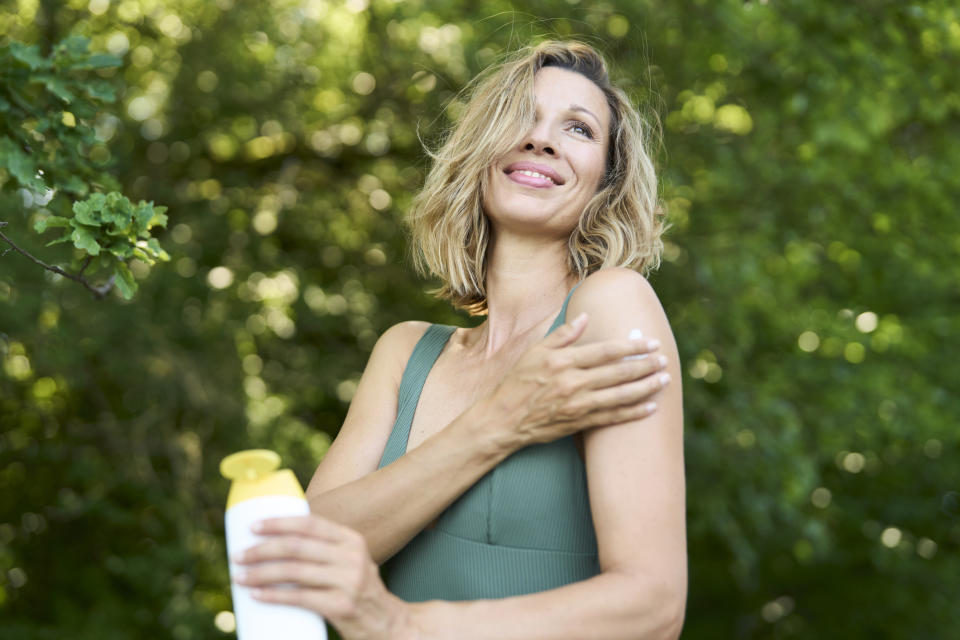
Dermatologist-backed sunscreen tips
“The American Academy of Dermatology (AAD) has determined that there is no safe amount of sun exposure, even if you’re just basking in the sun’s rays for some vitamin D," says Dr. Busso. That's why "sun avoidance and sun protection are essential for healthy skin and sunscreen is the single most effective topical to prevent the skin from aging,” Here, he shares his tips and tricks when it comes to all things sunscreen-related.
1. Opt for an SPF of 30 or more
SPF stands for ‘sun protection factor.’ And it’s a common misconception that the number stands for how long it’s safe to stay in the sun while wearing it. "Even though an SPF of 15 blocks 93% of UV radiation, today the recommendation is to use an SPF of 30, which blocks 97% of the sun’s harmful rays,” says Dr. Busso. “An SPF of 100 blocks 99% of rays. As you can see, the difference in protection between an SPF 30 and 100 is minimal.”
2. Choose an SPF labeled “broad-spectrum-"
This means it blocks both the UVA and UVB rays that the sun emits. For some background on these types of rays: UVA rays penetrate deeply and can cause long-term skin damage and premature aging, while UVB rays mostly affect the skin’s surface and cause short-term damage, like sunburn. “Protecting yourself from both types of rays is important for maintaining healthy skin and reducing the risk of skin cancer,” advises Dr. Busso.
Also, opt for ingredients like zinc oxide and titanium dioxide, which not only provide the most complete broad-spectrum protection for skin, they also tend to be more water-resistant.
3. Apply sunscreen 30 minutes before going outside
Doctors also say that in order to be effective, most sunscreens need to penetrate the skin barrier. “Sunscreen needs to be absorbed into the superficial layer of skin called stratum corneum and not just sit on top of it," says Dr. Busso. "Applying it 30 minutes before sun exposure is recommended to allow it to sink in. Otherwise, there is a risk that the protective effect can be lost by being rubbed off or through sweating."
4. Reapply every 2 hours when outside (or after swimming or sweating)
If indoors, reapply every 4 hours, advises Dr. Busso. To help with reapplication, set a timer on your smartphone as a reminder.
The 5 best sunscreen formulas, according to Dr. Busso
Keep scrolling to see Dr. Busso's top sunscreen picks that will block the sun's rays effectively to protect yourself from harmful sun damage.
Best clean sunscreen
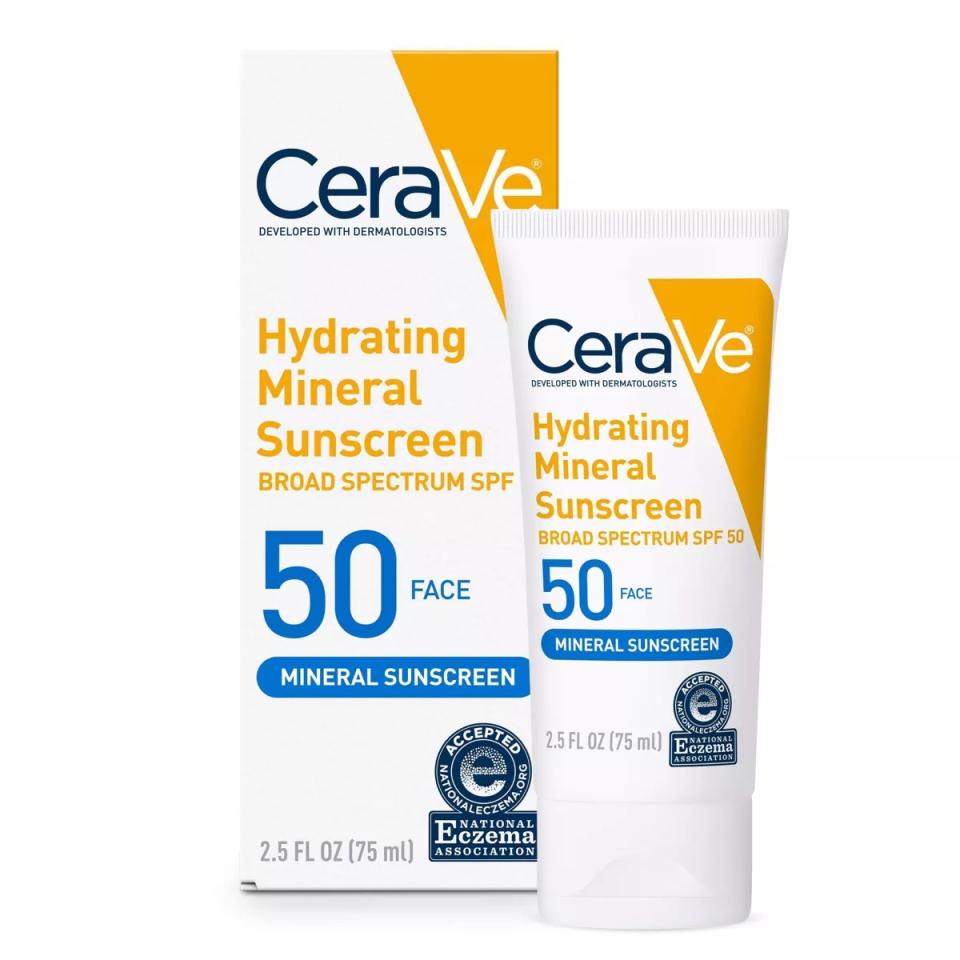
CeraVe Hydrating Mineral Sunscreen SPF 50
Dr. Busso likes this one that comes in both face and body versions because it’s broad-spectrum and nourishes sensitive skin. “In terms of clean products, you’re looking for less potentially irritating ingredients, and this one is mineral-based and fragrance-free,” he adds. Plus, this formula contains ceramides and niacinamide that deeply hydrate skin so it looks smooth and supple.
Best mineral sunscreen
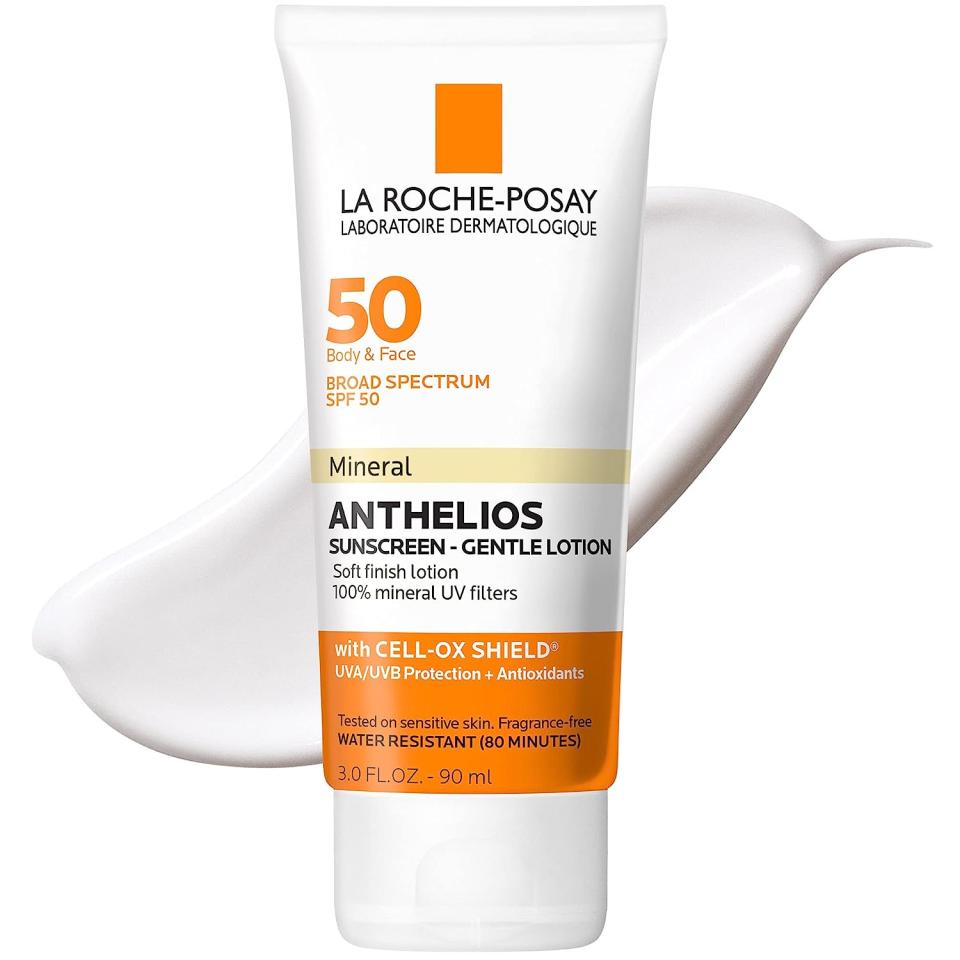
La Roche-Posay Anthelios Mineral Zinc Oxide Sunscreen SPF 50
Mineral sunscreens create a physical barrier on skin (rather than sinking into it) that deflects UV rays away from it. They also tend to be less irritating than other SPFs. This one is a great choice, says Dr. Busso (the brand’s sunscreens are also among Christie Brinkley’s picks). Its skin-soothing vitamin E and thermal spring water content calm irritated skin.
Related: Should I Use a Mineral or Chemical Sunscreen? Pros Weigh In + Share the Best SPF Formulas
Best face sunscreen
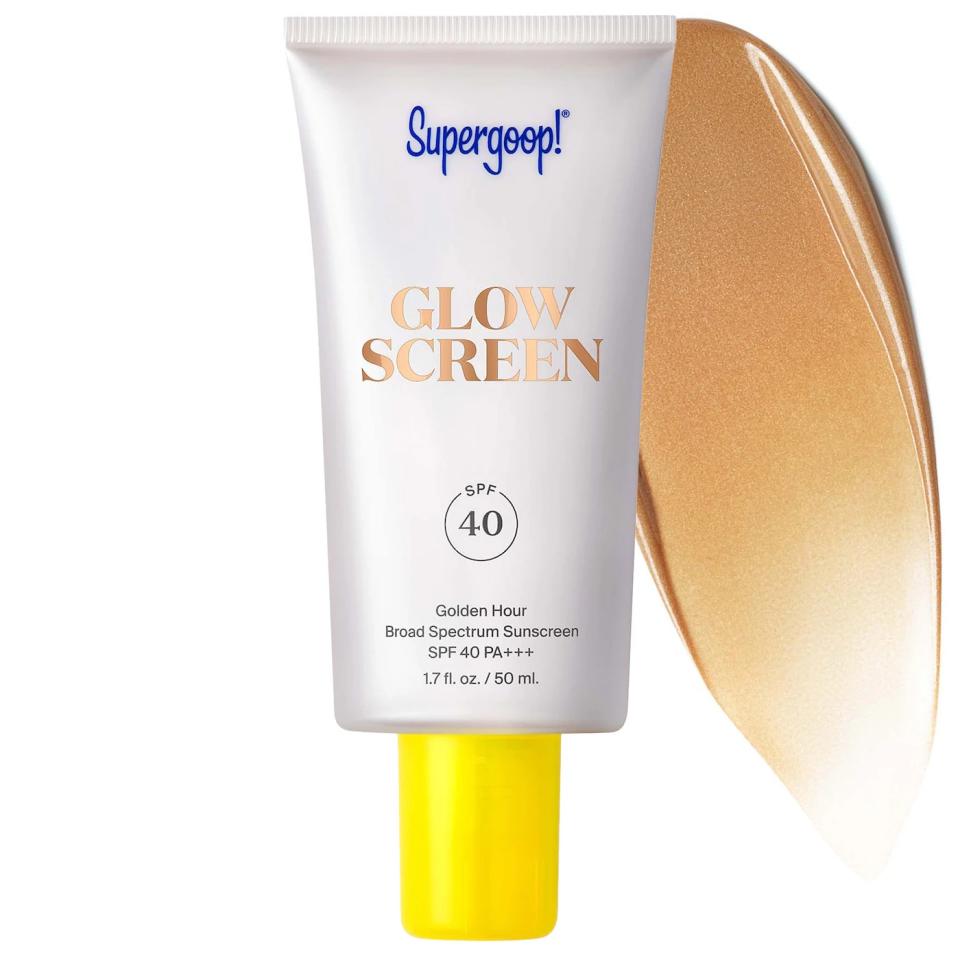
The need to reapply sunscreen when wearing makeup can be a pain. Enter: this tinted sunscreen, another of Christie’s picks. This SPF (it comes in four shades) offers light coverage and a luminous finish to blur imperfections. Plus, it’s infused with hyaluronic acid, which moisturizes and improves skin’s protective barrier to help maintain moisture levels.
Best body sunscreen
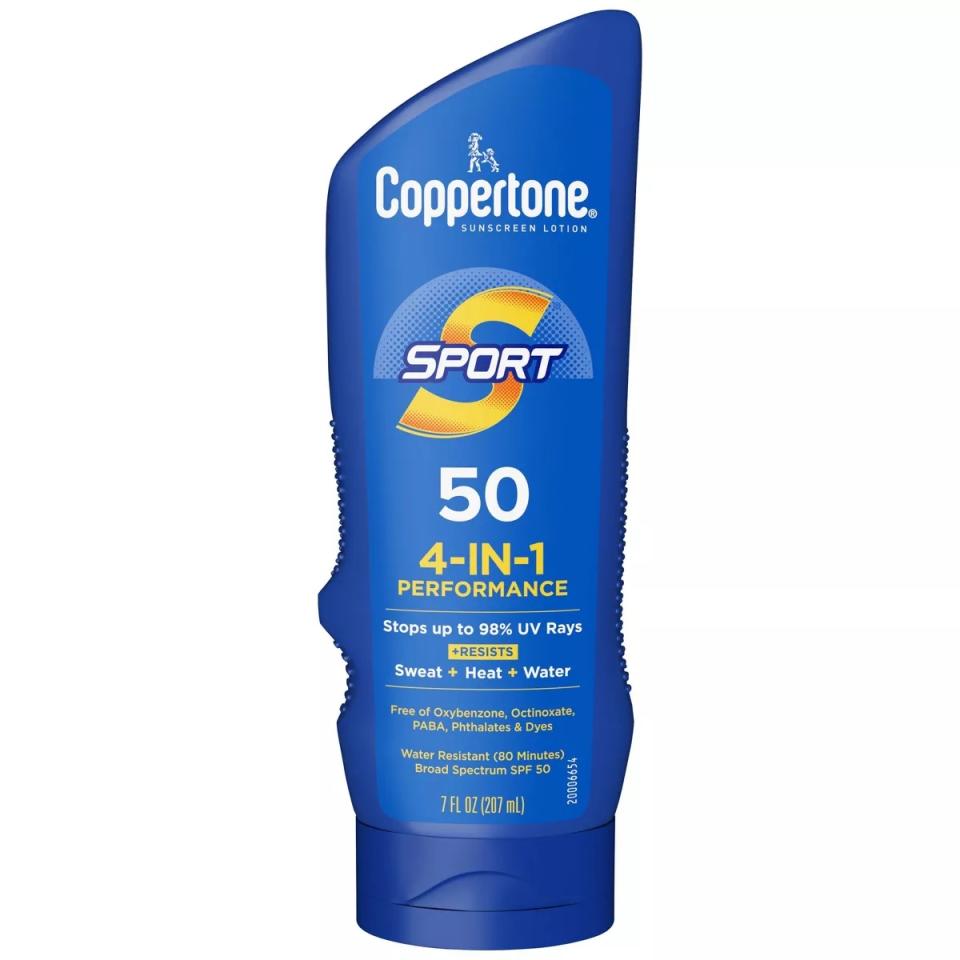
When looking for a sunscreen to slather all over, Dr. Busso recommends one specifically designed for outdoor activities and specifies that it should be water-resistant. One that fits the bill is this drugstore buy. Best of all, this sunscreen contains hydrating beeswax and glycerin that absorb into skin to prevent the lotion from feeling heavy or greasy.
Best budget sunscreen
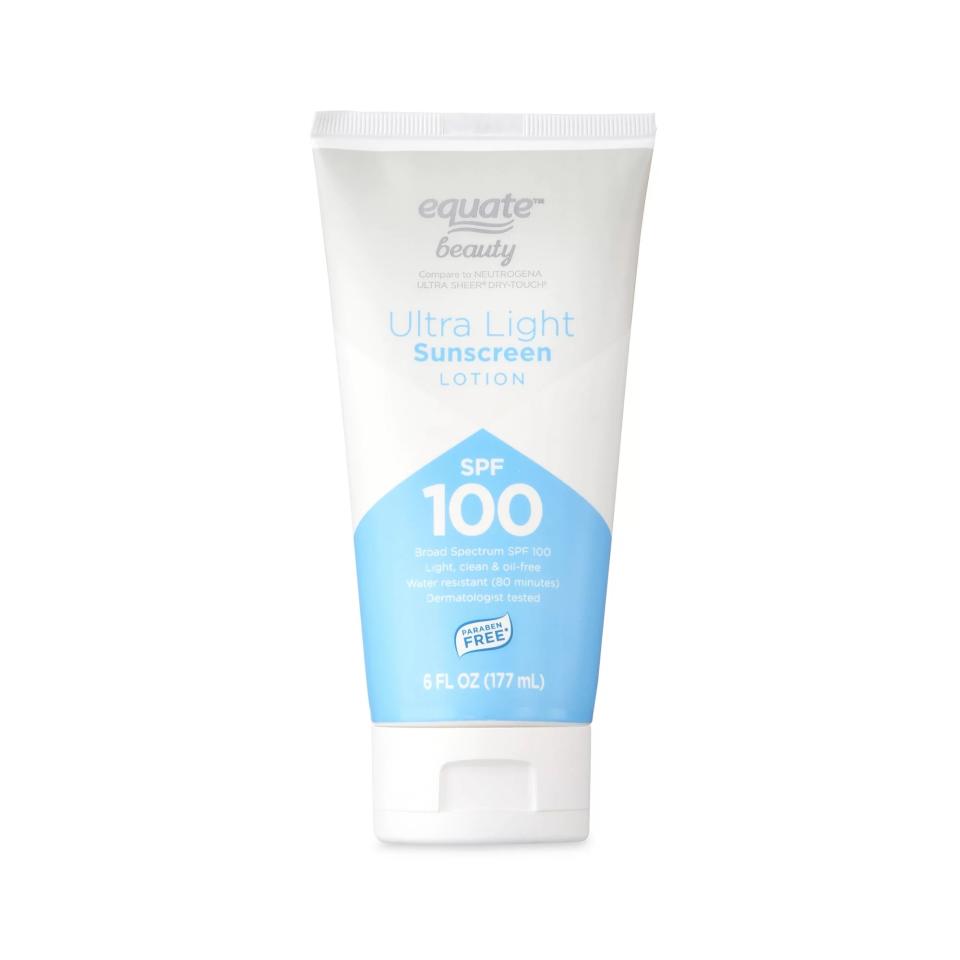
Equate Beauty Ultra Light Lotion SPF 100
With a price tag of $7, this non-greasy sunscreen for daily use is hard to beat, says Dr. Busso. Reviewers love how lightweight the lotion feels on skin, and it’s even considered a dupe for Neutrogena Ultra Sheer Dry Touch, which costs $4 more!
See more of our favorite beauty products for women over 50:
7 Best Night Creams for Mature Skin + Why You Should Add One to Your Skin Care Routine
8 Best Vitamin C Serums for Women Over 50: Brighten Skin, Smooth Wrinkles + More
7 Best Whole Body Deodorants That Keep You Odor-Free From Head to Toe
